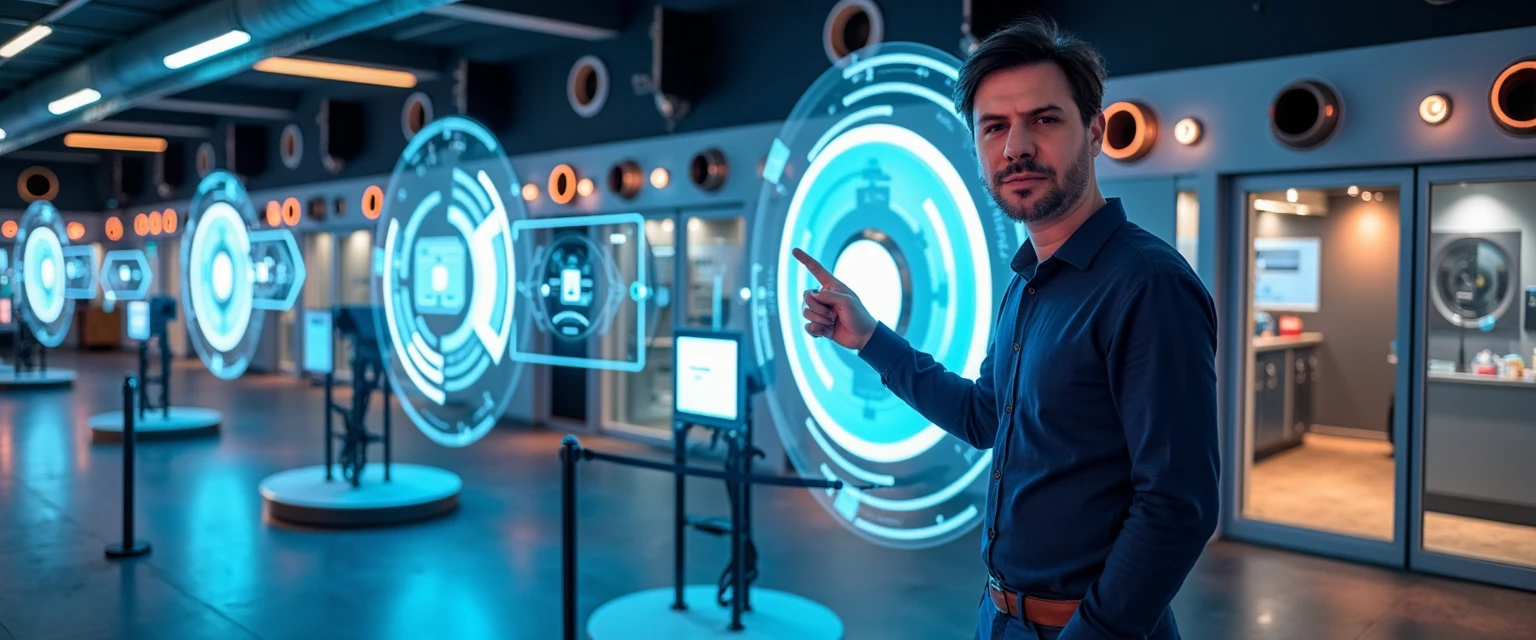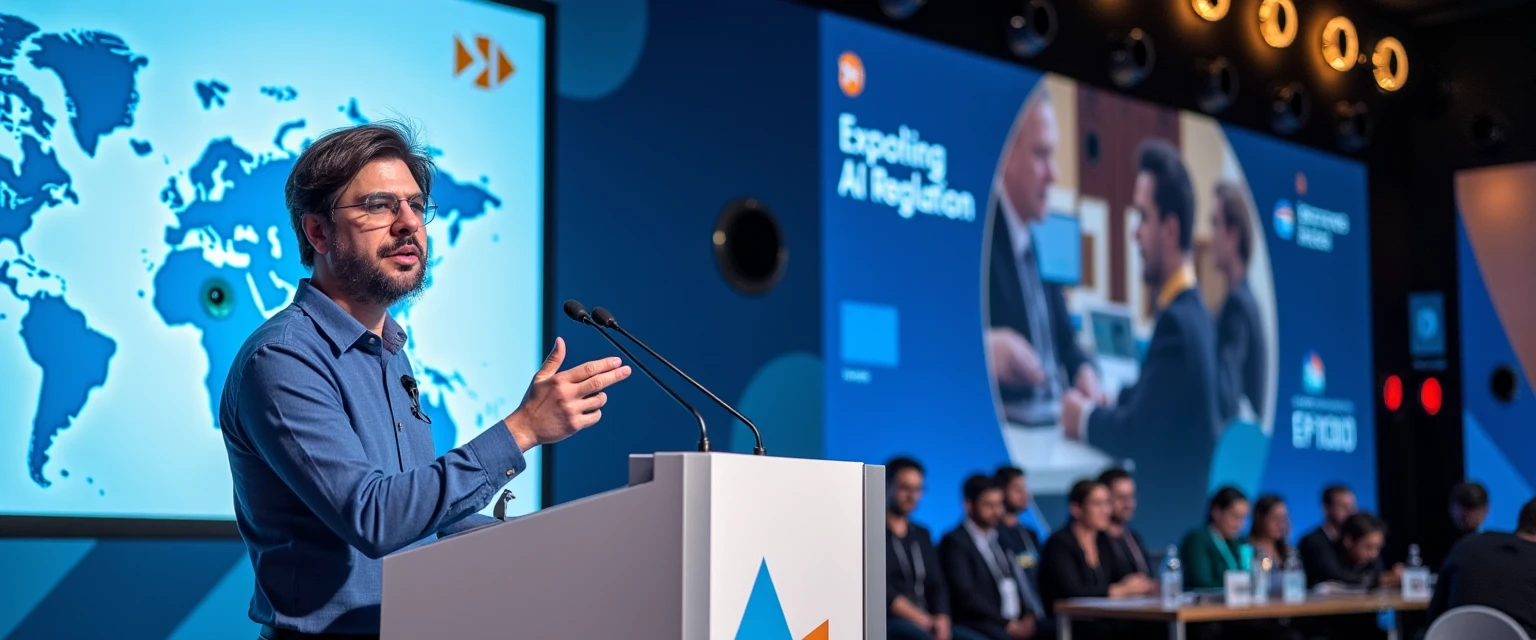AI Radar: From High Performance Sports to the Financial System — The Transformations of the Last 24 Hours
May 26, 2025 | by Matos AI

Artificial Intelligence continues to accelerate transformations in virtually every sector. In the last 24 hours, we have seen movements that confirm trends that I have been following for years: while some sectors are already reaping concrete financial results with AI, others are just beginning to explore its transformative potential. Let’s analyze the most relevant highlights of this news cycle and understand how this affects companies, professionals and the Brazilian innovation ecosystem.
AI turns athletes into “winning machines”
One of the most interesting highlights comes from the world of sports. According to a report by Estado de Minas, artificial intelligence is redefining high-performance training through wearable devices that analyze body data in real time, predicting fatigue and preventing injuries.
The research led by Marco Uchida, from Unicamp, demonstrates how AI is transforming the understanding of neuromuscular adaptations, enabling smarter and more personalized training. The Paris 2024 Olympics have already marked a turning point with the massive adoption of these technologies.
Join my WhatsApp groups! Daily updates with the most relevant news in the AI world and a vibrant community!
- AI for Business: focused on business and strategy.
- AI Builders: with a more technical and hands-on approach.
What strikes me most in this case is how AI is creating a new layer of actionable data that were previously invisible. In sports, as in business, those who can see patterns where others see only noise have a competitive advantage. We are faced with a classic case of information asymmetry being eliminated by technology.
It is worth noting, however, the challenge of accessibility: the high costs of AI devices and software continue to be obstacles for smaller teams. Democratizing these tools will be crucial in the coming years to prevent only the already privileged from benefiting from the AI revolution in sports.
Financial sector: 92% of AI use cases are already generating profits
While the sport is still moving towards mass adoption, the financial sector is already reaping concrete results. According to a study by KPMG, financial services companies generate profits from a staggering 92% of AI use cases.
However, there is one fact that deserves our attention: only 32% of these companies obtain significant returns. This reveals a pattern that I have observed in my work with companies undergoing digital transformation: implementing AI is relatively easy; extracting transformational value is the real challenge.
Another crucial point highlighted in the study is that 751% of executives believe that the lack of regulatory clarity limits investments in AI. This data confirms something I have been warning about for years: we need a regulatory framework that provides legal certainty without stifling innovation. Brazil needs to move forward with this agenda urgently to avoid falling behind in the global AI race.
Modernization to improve customer experience and reduce costs is driving adoption of cloud-based platforms, with 821% of financial firms prioritizing investments in this area in 2024. This movement signals a structural transformation in the sector that could serve as a model for other industries.
Google I/O 2025: the giant doubles down on AI
Google I/O 2025 brought several significant innovations in artificial intelligence that deserve our attention. According to G1, the company introduced a new AI mode in search that creates summaries instead of lists of links — a fundamental shift in how we interact with information online.
Other innovations include 3D video calling, real-time translation in Google Meet, and new tools for generating AI-powered videos and photos. These features reflect Google’s strategy of integrating AI into nearly every service it offers.
However, as reported by UOL, Google is also expanding its paid services with premium AI, such as Google AI Pro. This trend toward “premiumization” of AI is inevitable and raises important questions about access and digital inequality.
In my mentoring sessions, I have been highlighting that this shift to subscription models for advanced AI capabilities will be the new normal. Companies need to prepare for a world where access to cutting-edge AI tools can become a significant – and potentially expensive – competitive differentiator.
The “Otto” phenomenon: when the Beetle starts talking
A fascinating case of AI application in everyday life comes from Volkswagen. According to Valor Econômico, the automaker is implementing the virtual assistant “Otto” in its new vehicles, radically transforming the interaction between drivers and cars.
This innovation reminds me of the movie “The Love Bug,” but with very real implications for the future of mobility. Humanizing interactions with machines through conversational AI represents a new frontier in user experience—something I’ve been exploring extensively in my studies on human-machine interfaces.
The Volkswagen case illustrates a fundamental principle of innovation: the best technology is not necessarily the most advanced, but the one that integrates most naturally with human behavior. This is a valuable lesson for startups and companies developing AI-based products.
AI in everyday life: from productivity to risks
Microsoft continues its push to integrate AI into everyday applications. The Correio Braziliense reports that the company is testing AI updates for Windows 11, including features that allow automatic text generation in Notepad and improvements to tools like Paint and Snipping Tool.
These innovations are part of a larger trend that I call “ambient AI” – intelligent technologies that integrate subtly with the tools we already use, increasing our productivity without requiring radical changes in behavior.
On the other hand, AI also brings important social challenges. The Estadão warns that teens are engaging in romantic and sexual conversations with AI chatbots, raising legitimate concerns about unrealistic expectations about relationships.
This phenomenon illustrates a point I always emphasize in my lectures: technology advances much faster than our ability to understand its social and ethical implications. We need a broader dialogue on digital education and AI literacy to prepare new generations to interact healthily with these technologies.
Challenges and opportunities for Brazil
Analyzing the news landscape of the last 24 hours, it is clear that AI is penetrating practically all sectors of the economy and society. For Brazil, this represents both challenges and opportunities.
On the one hand, we have the chance to use AI to solve structural problems in areas such as health, education and public services. On the other hand, we run the risk of widening existing inequalities if there are no public policies and private initiatives focused on democratizing access to these technologies.
In my work with startups and corporations, I have observed an interesting pattern: the Brazilian companies that are making the most progress in adopting AI are not necessarily those with the most resources, but those that adopt an experimental approach focused on real problems. This is what I call “technological pragmatism” – using technology not for the hype, but for the tangible value it can generate.
Final considerations
The news of the last 24 hours confirms that we are experiencing a moment of acceleration in the adoption of AI, with profound impacts on several sectors. From high-performance sports to the financial system, from big tech to the automotive industry, artificial intelligence is redefining processes, products and experiences.
To successfully navigate this rapidly changing landscape, companies and professionals need to develop what I call an “adaptive mindset” – the ability to experiment with new technologies without losing focus on real problems and tangible value.
In my mentoring with companies and startups, I have helped teams develop precisely this capability: using AI not as an end in itself, but as a powerful tool to solve real problems and create significant value. Technology advances rapidly, but the fundamental principles of human-centered innovation continue to be our best guide on this journey.
If you are looking to understand how to apply AI strategically to your business or career, get in touch. I have worked with companies across a range of sectors to develop pragmatic AI adoption strategies that generate tangible results in the short and medium term.
✨Did you like it? You can sign up to receive 10K Digital's newsletters in your email, curated by me, with the best content about AI and business.
➡️ Join the 10K Community here
RELATED POSTS
View all



